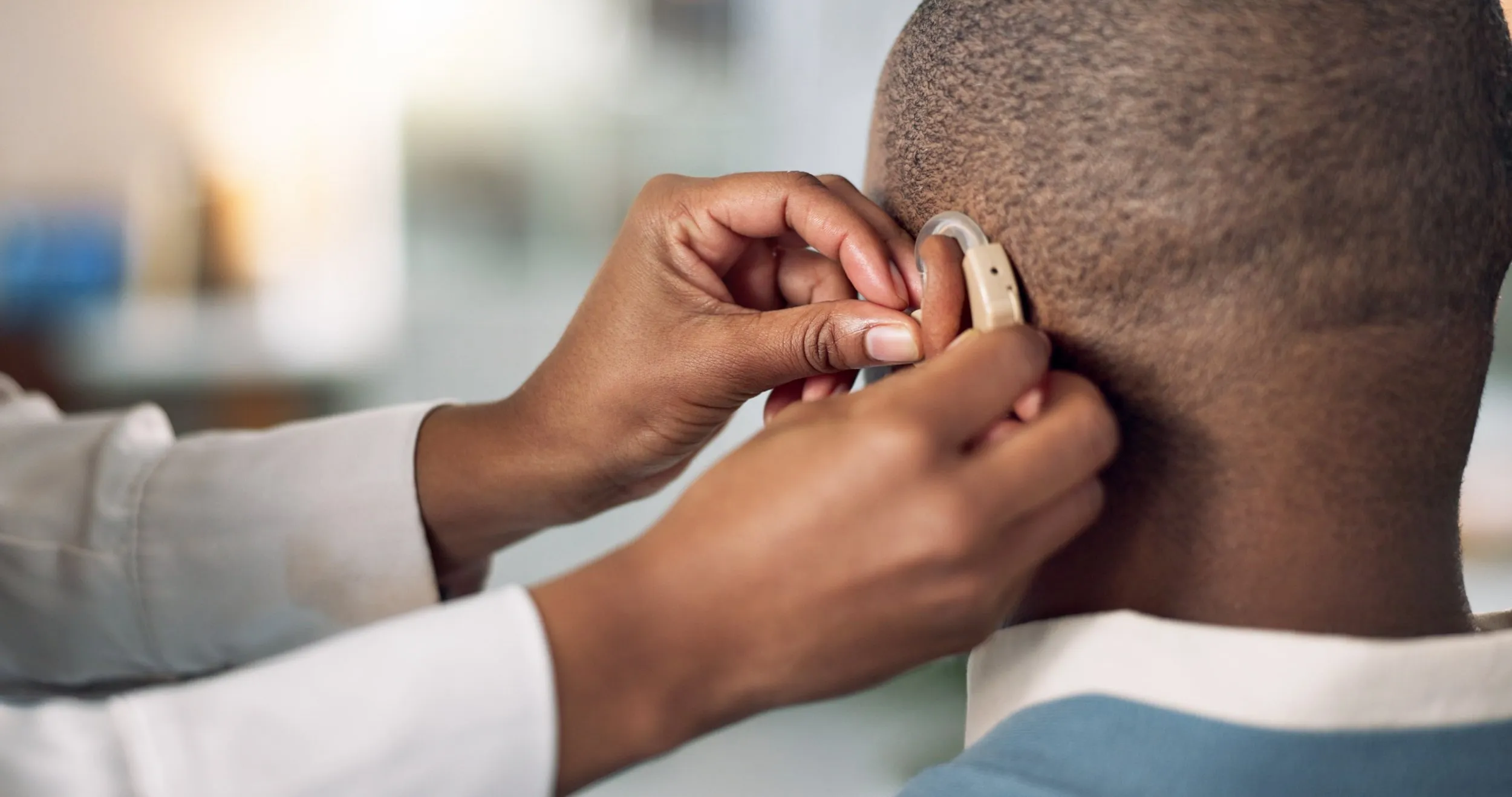Hearing aids are very small in size yet are one of the most powerful devices that help improve your hearing and communication.
Like any other electronic device, your hearing aids may need repairs. And knowing when something is wrong with your hearing aid can save you from bigger problems later. The best part? Understanding the signs early can also improve your hearing aid performance and overall comfort at all times.
In this blog, we will be taking you through some of the most common signs that tell you your hearing aid may need repairs.
Table of Contents
- Common Signs
- Drop in Volume Levels
- Distorted Sounds
- Physical Damage
- Short Battery Life
- Connectivity Problems with Accessories
- Difficulty Turning On or Off
- Inconsistent Performance
- Benefits of Getting Your Hearing Aid Repaired by a Professional
- In Essence
1. Drop in Volume Levels
If you experience a drop in volume levels or feel that the hearing aid suddenly makes you hear sounds softer than usual, then it is not normal.
A sudden drop in volume may mean something is wrong with the device. This could be possibly because of a weak battery or faulty internal parts. Regular hearing aid maintenance can help avoid these problems, but if the sound doesn’t return to normal, it is time to get the device repaired. Remember that noticing this change and acting fast is an important part of good hearing aid care.
2. Distorted Sounds
Next, you need to understand that clear sound is what your hearing aid is supposed to deliver.
If you begin to hear some strange distorted or bussing sounds, your device might have internal damage. Alternatively, it could also be a sign of moisture getting inside. These hearing aid issues can not just get annoying, but can also affect how you hear.
Remember that these kinds of hearing aid problems cannot be fixed perfectly by you, and so getting professional help is ideally important.
3. Physical Damage
You can sometimes tend to drop your hearing aid and this is when your device can suffer an impact both big or small. If the impact is small, then it won’t cause much problem. However, if the impact is big, it can show signs of physical damage.
These damage signs may include cracks or broken buttons, etc. that need to be fixed early on. Even if the device seems to be working fine, small damages can cause bigger hearing aid issues later on. Thus, being careful with your device is part of good hearing aid care, but repairs may still be needed if big damage occurs.
4. Short Battery Life
Ideally, a properly working hearing aid’s battery lasts for a longer time. If you notice that the device’s battery is draining faster than it would normally, it is ideal to get the device repaired as quick battery drainage can be a sign of a problem inside the device,
For instance, faulty circuits or moisture damage might be affecting the device’s regular function affecting the battery’s life in turn.
5. Connectivity Problems with Accessories
Hearing aids come in various types and styles and many modern hearing aids can smartly connect to phone’s too. If you are using one of the modern hearing aids, and if it is not syncing with your phone, then it’s time to get it repaired. The issue could be a software or hardware related problem and it can affect the hearing aid performance.
6. Difficulty Turning On or Off
One of the most basic signs that your hearing aid may need repair is that if it’s taking too long to turn on or off, there may be an internal fault. It’s important not to force the buttons or switches, as this may lead to more damage.
This is where regular hearing aid care becomes important. Professionals can easily detect and fix the problem before it gets worse.
7. Inconsistent Performance
Does your hearing aid work fine one day and poorly the next day? This is definitely a sign that your hearing aid requires repair. It might turn off sometime or sometime even produce strange sounds at times. This inconsistent hearing aid performance can make communication hard.
It’s best to get the hearing aid device checked to make sure that small problems don’t grow into bigger ones.
Benefits of Getting Your Hearing Aid Repaired by a Professional
Professional repair ensures that your hearing aid is treated with expert care. Here’s a quick look at the main benefits of trusting professionals with your hearing aid repairs:
| Benefit | How It Works |
|---|---|
| Accurate Diagnosis | Professionals can identify the real issue, not just surface problems. |
| Expert Repair | Skilled hands prevent further damage and fix devices correctly. |
| Long-Term Performance | Proper repair improves hearing aid performance and lifespan. |
| Warranty Protection | Certified repairs often keep your device’s warranty intact. |
| Peace of Mind | Knowing your device is in good hands lets you focus on hearing better. |
Getting your hearing aid fixed by a professional helps you rest assured that your device is in good hands. Always choose a trusted provider like Adirondack Audiology for the best results.
In Essence,
Understanding these early signs of hearing aid problems can help you keep your device working its best at all times.
Signs like weird sounds, sudden volume changes, or physical damage should not be ignored. Know that regular hearing aid maintenance and care will ensure your hearing aid lasts longer and gives you clear sound without any issues.
If you are experiencing any of these signs, then Adirondack Audiology has got you covered. We provide comprehensive hearing aid repair services. Our team is here to guide you through the entire process, identify the problem with your hearing aid, and find the perfect solution for your hearing aid repair needs.
Call us today at +1 (802) 922-9545 to book your appointment and visit our nearest centre to experience the best hearing aid repair service from our expert team.









